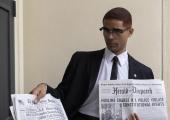Laura Beatty: Looking for Theophrastus review - adventures in psychobiography

A portrait of Lesbos and its ‘lost’ philosopher
Laura Beatty is a kind of Shirley Valentine figure in contemporary English literature. A decade and a half ago she published an astonishing debut novel entitled Pollard about female emancipation from the strictures of English life. In that story her escapist heroine falls in love with – and in – Salcey Forest, whose mysteries (and voices) Beatty captures with marvellous poetic skill.









